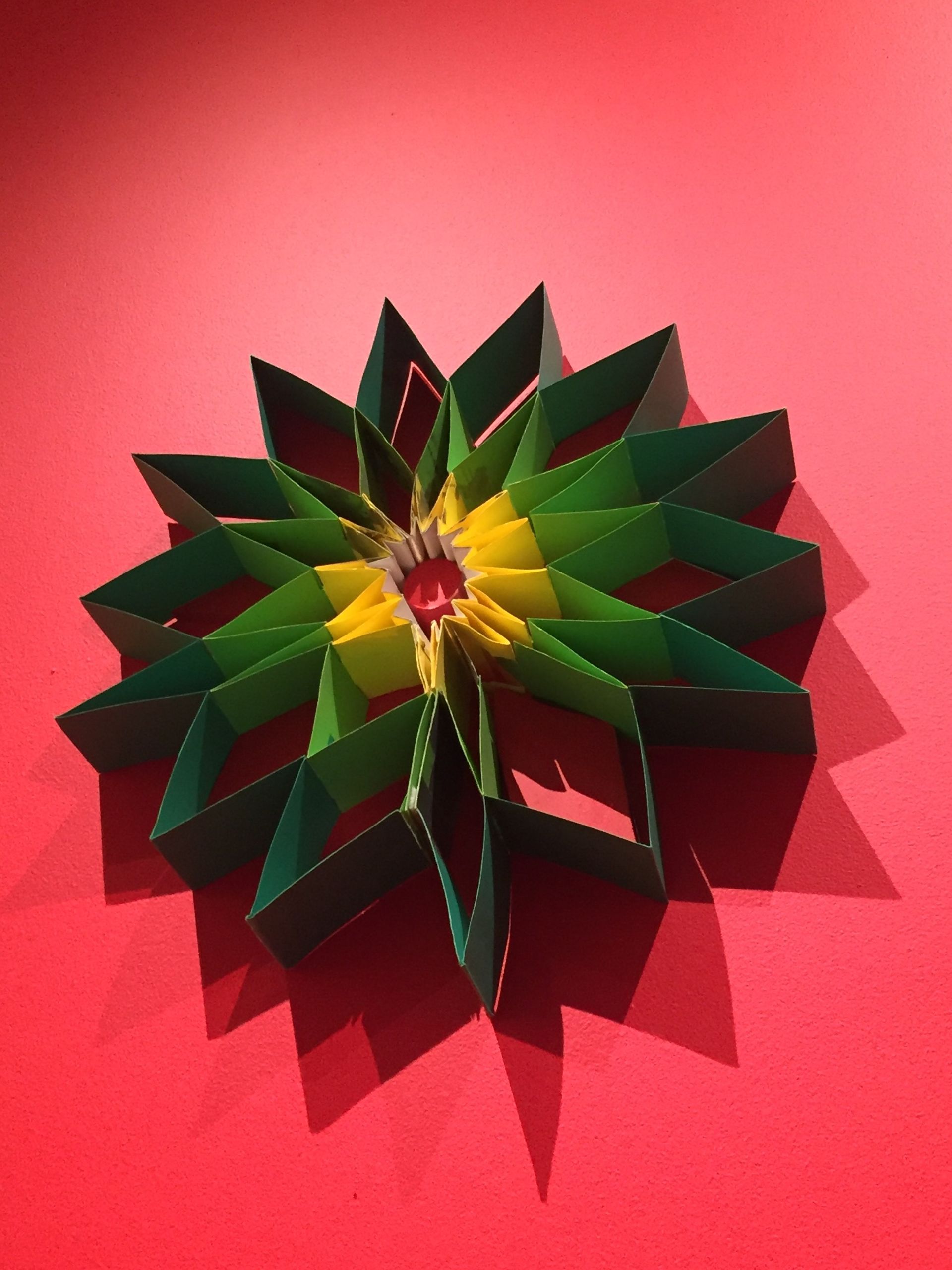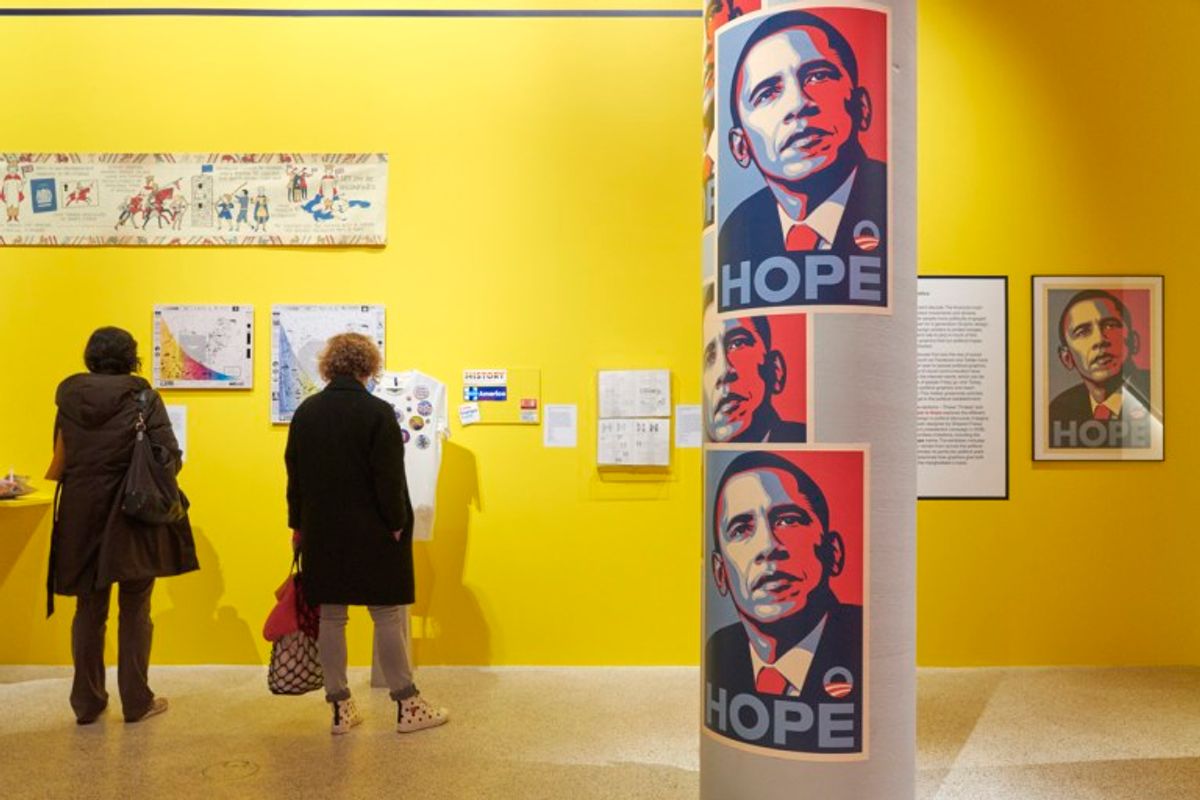The Los Angeles street artist Shepard Fairey has joined a growing group of artists and activists who are calling for their work to be removed from a political graphic design exhibition at the Design Museum after the London institution hosted a private event associated with the arms trade last week.
Hope to Nope: Graphics and Politics 2008-18 (until 12 August) explores how graphic design has shaped politics, starting with Fairey’s famous 2008 “Hope” poster of Barack Obama. In a statement posted on Instagram on 26 July, Fairey says: “Even as a financially destitute artist I have turned down several lucrative offers from companies whose values don’t align with mine. I unequivocally do not support their decision to do business with an arms manufacturer, and along with many of the other featured artists, I will be taking action.”
The event on 17 July, organised to coincide with the Farnborough International airshow, was set up by the Italian aerospace company Leonardo. Campaigners say the firm is estimated to be the world’s ninth largest arms company and has equipped “human rights abusing regimes and dictatorships” including in Saudi Arabia, Turkey and the Philippines.
In a statement released today (25 July) the group of 23 artists, plus others who work with the museum, say it is “deeply hypocritical for the museum to display and celebrate the work of radical anti-corporate artists and activists, while quietly supporting and profiting from one of the most destructive and deadly industries in the world”.
Danny Chivers, from the activist theatre troupe BP or not BP?, which has contributed a Shakespearean ruff in the shape of the BP logo, says it is “jaw-dropping” that the museum hosted an event for “one of the most unethical industries on the planet while displaying our object on its wall”. He adds: “No respectable museum should be working with either arms dealers or fossil fuel companies”.

The activist theatre troupe BP or not BP? has contributed a Shakespearean ruff in the shape of the BP logo Courtesy of BP or not BP?
Sampson Wong, from Hong Kong’s Umbrella Movement, has loaned objects that he picked up in the streets during the 2014 protests for democracy in Hong Kong. “I am shocked that at the same time as they superficially celebrate our protest materials, the museum is hosting a reception for companies like Chemring, the arms dealers who supplied the tear gas that was used on us,” he says.
Other signatories include Kathrin Böhm, the co-founder of Company Drinks, which has bottles of Sour Brexit on display; Jamie of Bristol Streetwear, whose Jeremy Corbyn Nike swoosh t-shirt features in the exhibition; and the editor, writer and lecturer Ash Sarkar, who recently made headlines for clashing with Piers Morgan on the television programme Good Morning Britain.
Their letter calls for the work to be removed by 1 August “as our art is now being displayed in your museum without our consent”. It also asks that the museum develops an ethical funding policy that refuses any funds from arms, tobacco and fossil fuel companies.
In a statement, the Design Museum says it is “in the process of responding to each contributor regarding the display of their work”. It adds: “As a charity, 98% of the museum’s running costs come from admissions, retail, fundraising and event hire, such as the one hosted that night. This was a private event of which there was no endorsement by the museum.
“The Design Museum is committed to achieving its charitable objective to advance the education of the public in the study of all forms of design and architecture and is thus a place of debate that, by definition, welcomes a plurality of voices and commercial entities. However, we take the response to Tuesday’s event seriously and we are reviewing our due diligence policy related to commercial and fundraising activities.”


